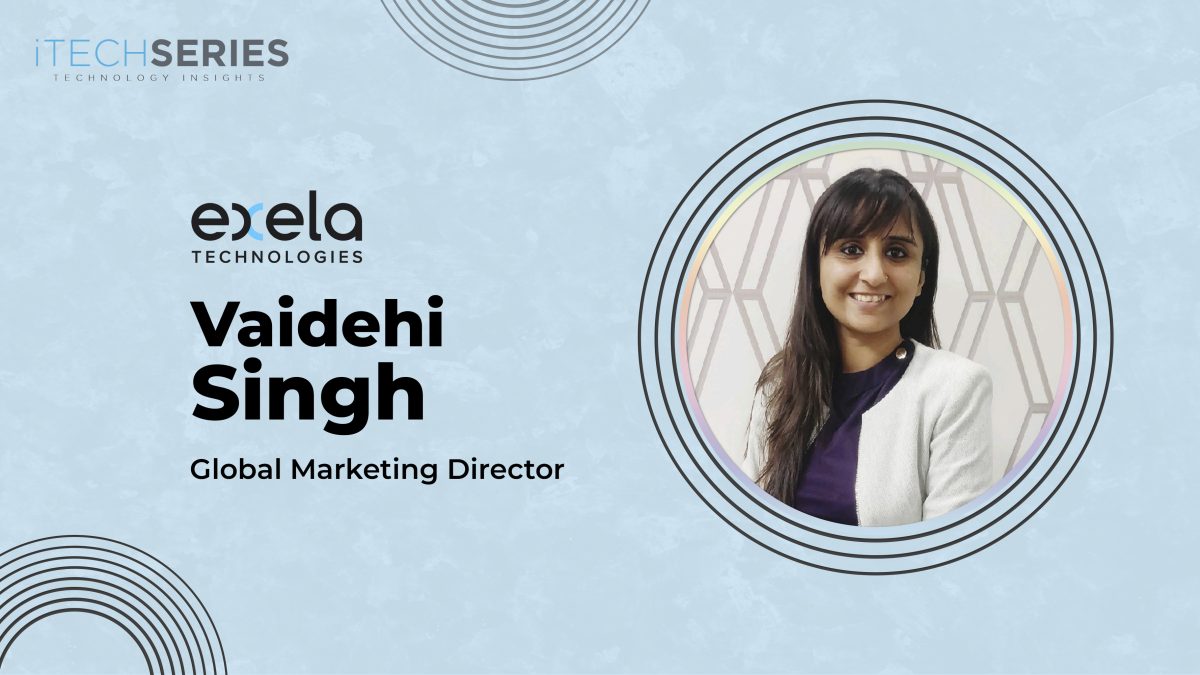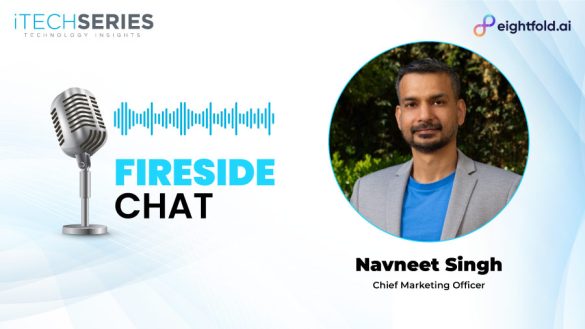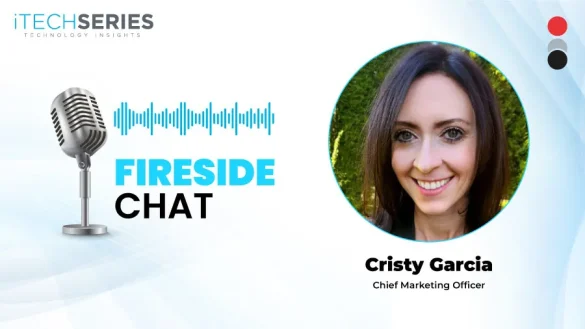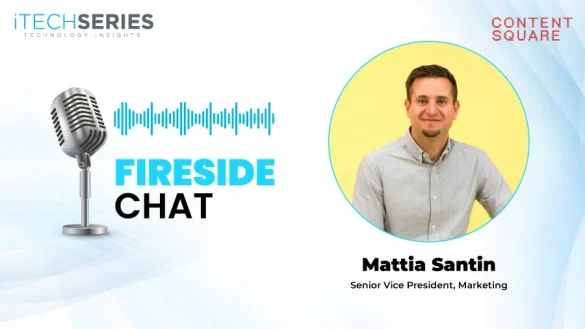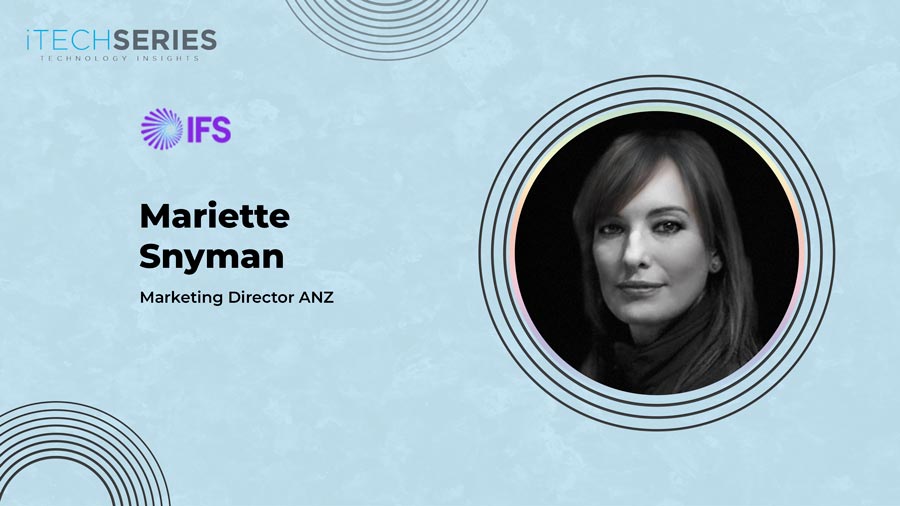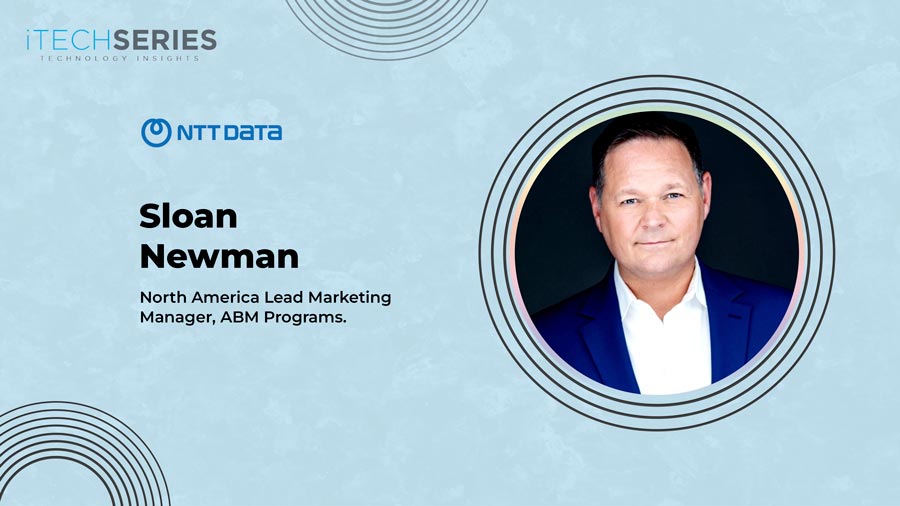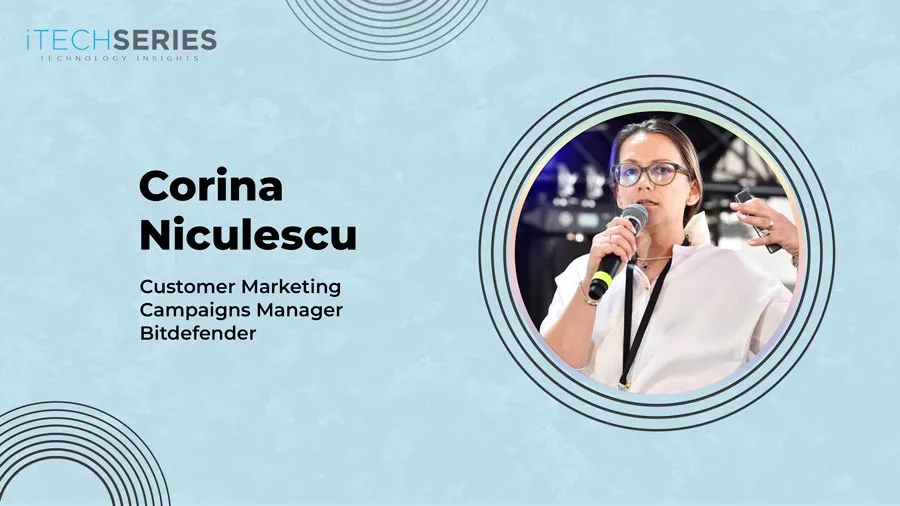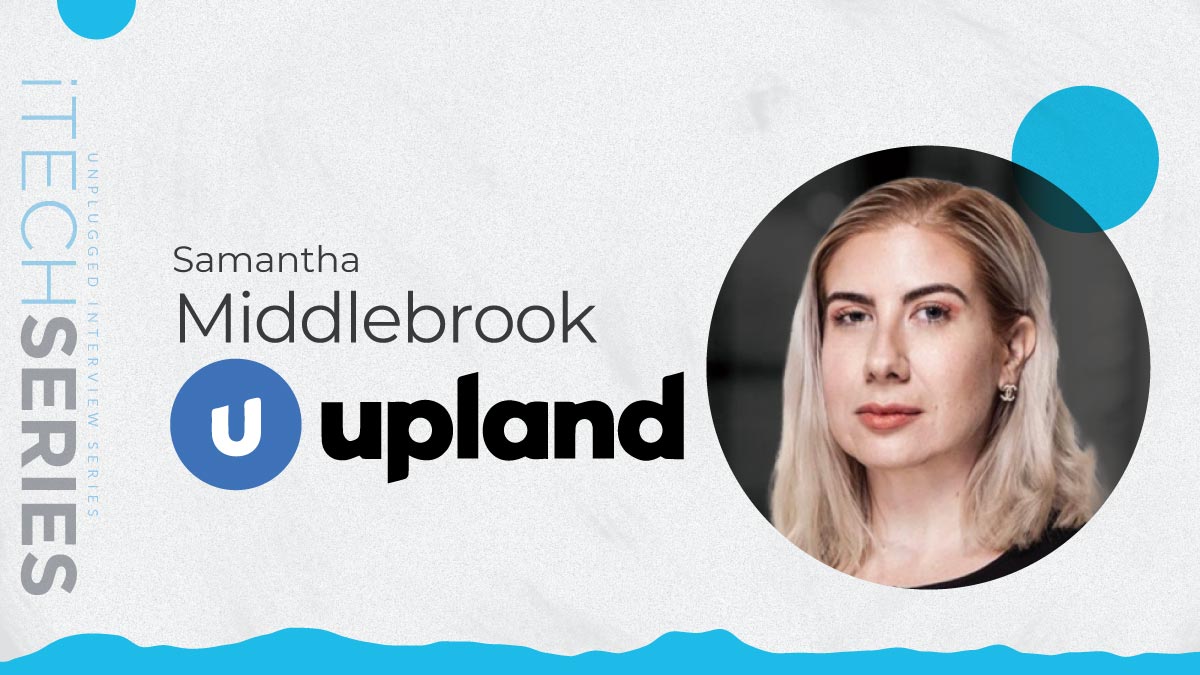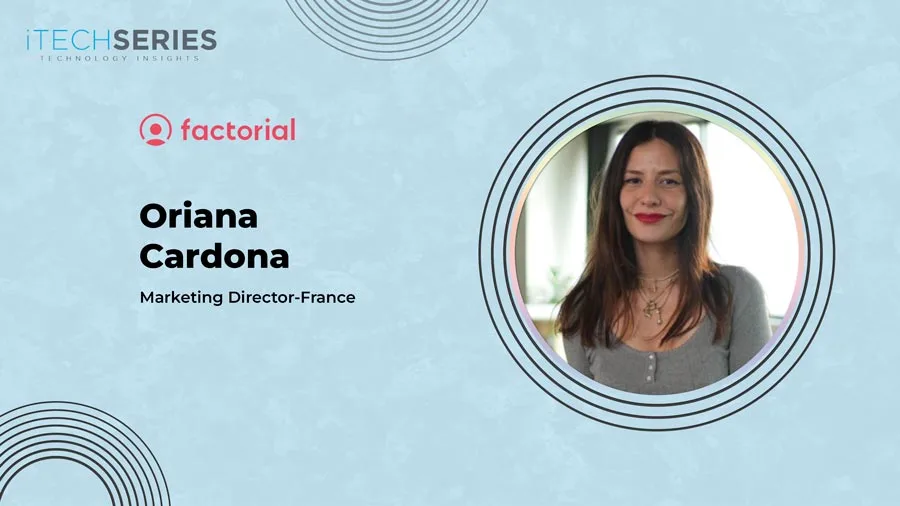Vaidehi Singh, Global Marketing Director at Exela Technologies and a seasoned go-to-market leader offers valuable insights into customer-centric strategies, the impact of AI and automation, growth marketing, customer success, and fostering cross-team collaboration for impactful results.
Welcome to the interview series, Vaidehi. Can you tell us about yourself and your journey as a marketing leader?
Thank you! It’s a pleasure to be part of this series. My journey as a marketing leader has been an exciting blend of creativity, strategy, and innovation. I’ve always been passionate about marketing and storytelling, and my journey as a marketing leader reflects that. Over the years, I’ve had the privilege of leading marketing teams across various sectors, helping organisations align their strategies with evolving market trends.
I’ve worked extensively in lifecycle marketing and brand positioning, where my focus has always been on customer-centric approaches. The rise of AI and automation has been a game-changer, and I’ve embraced these advancements to drive efficiency while still maintaining a personal touch in campaigns.
My time working in startups and tech environments has helped me understand the importance of agility and adaptability. Throughout my career, I’ve prioritised staying ahead of industry trends, leveraging data-driven insights, and continuously learning to adapt to the ever-evolving digital landscape. What excites me the most is the intersection of creativity and technology, where I can experiment with new tools and platforms to create innovative marketing strategies.
Could you describe your approach to developing growth marketing strategies that effectively drive customer acquisition and retention?
My approach to developing growth marketing strategies balances customer-centricity and an agile mindset. Sustainable growth relies on understanding the customer journey and adapting strategies based on data and performance metrics. I start by defining clear, measurable goals, and collaborating closely with sales, product, and customer success teams to align on key objectives. Data analytics help me identify customer pain points and engagement trends, shaping personalised, multi-channel marketing strategies that resonate with target audiences.
For acquisition, I build strong inbound and outbound funnels using SEO, content marketing, targeted campaigns, and ABM to attract high-quality leads. Continuous A/B testing and optimization ensure maximum ROI. In the case of retention, I focus on delivering long-term value through lifecycle marketing programs that enhance engagement and education. Tracking metrics like customer lifetime value and churn rate allows me to measure effectiveness and refine strategies, ultimately driving customer loyalty and business growth.
“I’ve prioritised staying ahead of industry trends, leveraging data-driven insights, and continuously learning to adapt to the ever-evolving digital landscape.”
How has the role of marketing evolved in your experience, particularly in terms of aligning with sales and customer success?
The role of marketing has transformed significantly, evolving from a focus on brand awareness and lead generation to driving full-funnel engagement. Collaboration between marketing and sales is crucial, with real-time data sharing ensuring effective targeting and nurturing of prospects. Marketing is now responsible for providing actionable intelligence on customer behaviours and pain points and enhancing sales conversations.
Additionally, marketing’s relationship with customer success has strengthened, particularly in subscription models where retention is vital. Data insights help identify at-risk customers and marketing automation supports scalable, personalised engagement, driving business growth across the entire customer lifecycle.
When presented with multiple campaign ideas and suggestions, how do you evaluate and select the best ones?
When evaluating multiple campaign ideas, I prioritise a data-driven approach. First, I assess how well each idea aligns with the overall business goals—whether it’s driving customer acquisition, increasing retention, or expanding into new markets.
Audience insights play a critical role, so I analyse past campaign performance to understand which ideas resonate most with our target customers. I look at data like customer pain points, buying behaviours, and engagement trends to ensure that the campaigns will deliver relevant, impactful messaging.
Next, I assess feasibility, including budget, resources, and timelines. A campaign that can be executed efficiently while maximising reach and conversion is often the ideal choice. Finally, I test and optimise. Even after selecting a campaign, continuous performance tracking and refinement are crucial to ensuring we’re driving maximum impact.
How do you foster collaboration and define clear goals within your marketing teams to ensure successful outcomes?
Fostering collaboration and setting clear goals within my marketing teams starts with creating a culture of transparency and shared purpose. I ensure that every team member understands how their role contributes to the broader business objectives. Regular communication is key to aligning priorities and ensuring everyone is working towards the same outcomes.
When defining goals, I emphasise measurable, time-bound objectives tied to specific KPIs, so that progress is clear, and success is easily tracked. I also encourage cross-team collaboration, where creative, content, and data teams work together to bring diverse perspectives into every campaign. Continuous feedback loops ensure that teams can iterate, learn, and optimise strategies, resulting in a unified effort and successful marketing outcomes.
As a go-to-market leader, what is your advice for balancing the need for marketing automation with personalized outreach?
As a go-to-market leader, my advice is to leverage marketing automation for scalability while ensuring personalization remains a priority. Automation tools enable us to streamline processes, segment audiences, and deliver targeted content at the right time, maximising efficiency. However, the key is to integrate personalization within these systems—using data like customer behaviour, preferences, and past interactions to tailor messaging. By automating routine tasks like lead scoring and follow-ups, we free up time to focus on crafting personalised outreach that resonates on a deeper level, striking the right balance between efficiency and customer-centric engagement.
What are the key metrics and reports that you prioritize for evaluating a campaign’s success?
When evaluating a campaign’s success, I prioritise metrics that align with both short-term and long-term business goals. For acquisition-focused campaigns, key metrics include conversion rates, customer acquisition cost (CAC), and return on ad spend (ROAS). Engagement metrics like click-through rates (CTR), bounce rates, and time-on-page help assess content effectiveness.
For retention-focused initiatives, I look at customer lifetime value (CLTV), churn rate, and net promoter score (NPS) to measure loyalty and satisfaction. I also rely on multi-touch attribution reports to understand how various touchpoints contribute to conversions, along with funnel analysis to track performance at each stage and optimize future campaigns based on data-driven insights.
How do you see the impact of AI on transforming the overall marketing landscape?
AI is transforming the marketing landscape by enabling more personalised, data-driven strategies. It enhances customer insights through advanced analytics, allowing marketers to understand behaviours and preferences at a ground level. This empowers us to create highly targeted campaigns that resonate with audiences.
AI also automates repetitive tasks, freeing up valuable time for strategic thinking and creativity. Tools for predictive analytics help in forecasting trends and consumer behaviour, ensuring timely and relevant outreach. Overall, AI not only boosts efficiency and effectiveness but also elevates the customer experience, making marketing more agile and responsive to changing market dynamics.
Could you share your approach to marketing leadership and any valuable insights from your own experience?
My approach to marketing leadership centers on creating a collaborative and empowering environment where creativity can thrive. I believe that effective leadership is about nurturing talent and encouraging team members to bring their unique perspectives to the table. By creating an inclusive culture, I ensure that everyone feels valued and motivated to contribute to our shared goals.
Communication is key; I prioritise open dialogue to keep the team aligned and informed about our objectives. I also emphasise the importance of continuous learning, encouraging my team to explore new ideas and stay updated on industry trends.
One valuable insight I’ve gained is the significance of adaptability. The marketing landscape is constantly evolving, and being agile allows us to respond effectively to changes. By embracing innovation and encouraging experimentation, we can stay ahead of the curve and deliver impactful results that resonate with our audience.

Exela Technologies is a leader in business process automation (BPA), providing digital transformation solutions that enhance quality, productivity, and user experience. With decades of expertise, Exela serves over 4,000 customers in 50 countries. Its offerings include software and services for finance, accounting, human capital management, and legal management, as well as industry-specific solutions for banking, healthcare, and insurance. With over 17,500 employees across 23 countries, Exela partners with clients for comprehensive digital journeys.
Vaidehi is a seasoned marketing leader with 17 years of experience in B2B marketing, currently serving as Global Marketing Director at Exela Technologies. She excels in growth marketing, digital campaigns, branding, event management, streamlining processes, and generating business growth. Vaidehi has received multiple honors for her marketing and blogging expertise and has published numerous articles and interviews. Passionate about knowledge sharing, she is dedicated to helping businesses thrive in the digital era.

